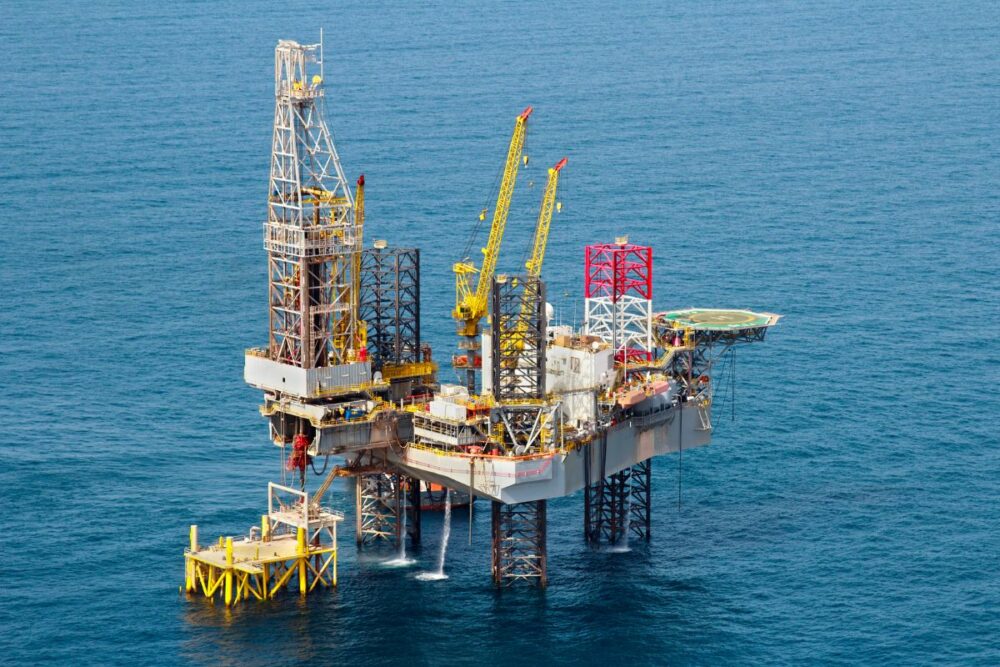When it comes to dangerous day jobs, there probably isn’t a list that isn’t complete without workers who are stationed on an oil rig.
From handling dangerous equipment to falling hazards, there is a lot about working on these installations that can be a hazard to your health.

However, those risks are more often than not worth it, as oil rig workers also enjoy relatively high salaries, even at the lowest level of entry.
So, if you’re considering looking for a new job role in this sector, you may be wondering yourself: How much exactly do oil rig workers make for their jobs?
Well, that’s what we’re here to show you!
In this guide, we are going to show you some of the roles that need to be filled on an oil rig, as well as some of the most notable roles that you’ll find on these installations as well.
What Is The Average Salary For An Oil Rig Worker?
So, we should probably answer the big question first: How much exactly do oil rig workers make?
Well, the exact answer will vary, depending on the role that a person has on an oil rig. However, starting positions and roles on an oil rig, such as a roustabout, will usually start at around $47,000 to $50,000, with positions in management aboard an oil rig often earning well over $100,000.
Different Job Roles On An Oil Rig

However, the amount that you are paid on an oil rig will vary quite a lot, depending on the exact role that you are filling.
Pumper
With an average annual salary of around $46,736, pumpers do exactly what their job role sounds like, operating oil pumps and making sure that they are functioning properly, as well as maintaining oil flow throw pumps and into storage, alongside any meters or gauges that are associated with pump functions.
This can also include some maintenance work on the oil rig’s pumps, including replacing components to pump engines.
Pumpers are also expected to make sure that the pumping schedules for oil from the station are on course to be met alongside all of this, so even this role that would be considered entry-level takes on a lot of responsibility.
Pump Technician
The next step up from pumper, pump technicians are much more focused on the maintenance of pump operations across the installation, with some of their responsibilities including inspecting the water system, heat exchangers, expansion tanks, and plenty of other vital equipment outside of the primary oil pump.
They are also expected to track pump operations and adjust equipment accordingly and make any notes of operational concerns around the pumps on an oil rig.
For all this responsibility, pump technicians generally get paid more than pumpers, with the average salary being around $47,991.
Oil Rig Mechanic
Oil rig mechanics are exactly what they sound like, functioning as mechanics and repairers for many essential systems across the entire oil rig installation.
Mechanics will be responsible for making improvements to the oil rig’s performance when it comes to oil pumps through mechanical adjustments and proper lubrication if they are mainly in charge of monitoring and improving oil pumps.
Alternatively, mechanics on oil rigs may be tasked with repairing and maintaining vehicles too, such as helicopters, oil-hauling machines, and so on.
This need for versatility is reflected in their salaries, with the average salary for an oil rig mechanic benign around $59,508 a year.
Qualifications Needed To Work On An Oil Rig
For many people, these salaries might make working on oil rigs a very tempting proposition, despite the dangers faced when out at sea. And it may have them wondering whether or not they already have the qualifications to get involved in this industry.
Well, what qualifications you do need will depend largely on the role that you’re initially applying for. If you are applying for roles that take place on an oil rig, you usually will have to meet the minimum requirements necessary to work on a rig, which includes:
- Being at least 18 years old or older.
- Passing a minimum physical entry exam.
- Demonstrate that you are prepared and willing to work long 12-hour shifts for several weeks at a time.
These are the minimum requirements for working on an oil rig, keep in mind. For roles that are more specialized, or require more training, there are likely to be extra requirements.
For example, deckhands may require only a high school diploma, whereas geologists stationed on an oil rig will likely need some kind of bachelor’s degree in the subject, unsurprisingly.
Dangers Of Working On An Oil Rig
The high salaries that you’ll generally find in this industry aren’t just for show, as you likely already suspect.
Working on oil rigs often comes with a high level of danger involved, with accidents being a common occurrence, and fatalities relatively high in this industry.
These are just some of the most likely hazards that a person will encounter when working on an oil rig.
- Fire is a common hazard, considering the highly volatile substance that is extracted and collected on oil rigs. Combine that with the hazardous chemical that is often also kept on oil rigs for machinery maintenance, such as hydrogen peroxide, and you have a recipe for some of the nastiest chemical fires out there.
- With oil rig work being incredibly labor-intensive, tiredness is a real issue that workers face. Not only does fatigue make it more likely for them to suffer an accident at work, but it can carry over to their normal lives too.
- Falling is also a common danger and injury that oil rig workers can suffer from, as well as injuries from heavy machines.
Final Thoughts
So, as you can see, working on oil rigs is no small task, and comes with a lot of risks.
However, as we have shown here, the high salaries of this industry are often worth it to those who choose to work out on these installations at sea.
- Types of Gas Carriers as per IGC Code – April 22, 2025
- Wind-Assisted Propulsion Systems (WAPS): A Game Changer for Maritime Decarbonization – February 6, 2025
- 10 Boat Salvage Yards in California – January 25, 2025




